Sight ID:
-Black raspberry (Rubus occidentalis) is easily identified by its white glabrous stem and prickly shoots coming out. The leaves are pinnate and in the summer will have a nice black raspberry fruit on them. I found this species in the woods behind the Don Scott Airport.
-Queen Anne’s Lace or wild carrot (Daucus carota) can be found all over Ohio. It is a very distinguishable plant because of the large groups of small white flowers in an umbel formation. These typically grow between 2 and 3 feet tall. This wild carrot was found in our field trip to Kraus Preserve with Woody ID.
Family ID:
Cyperacea: Buxbaum’s sedge (Carex buxbaumii). This family is most easily identified by the common phrase “sedges have edges”. If you feel the stem of these, instead of being rounded like a grass, it would feel like its in the shape of a triangle. The leaves on these are small and narrow. I saw this during our trip to Cedar Bog.
Asteraceae: Common daisy (Bellis perennis). This family is identifiable from the composite flower type in the form of capitula surrounded by involucral bracts. This specimen was seen in Camp Mary Orton.
Character items: A plant with flowers that have many stamen, A plant with a gynoecium composed of two carpels
This wild tomato in the Solanaceae family is a plant that we dissected in class and saw at Cedar Bog. It is clear from this picture that it has two carpels.
We also saw this plant at Cedar Bog, however I don’t remember what it is. You can clearly see the stamen all over the flower.
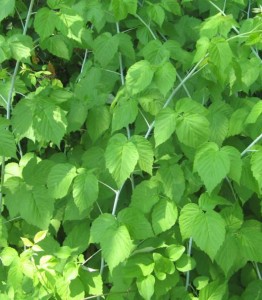
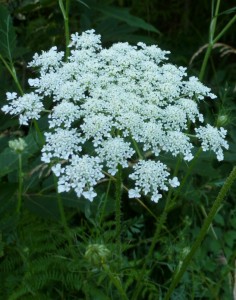
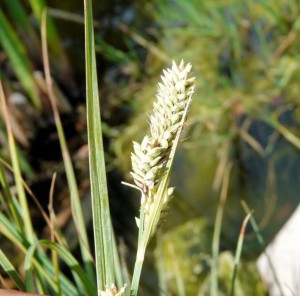
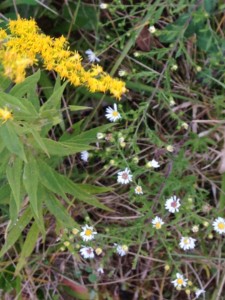
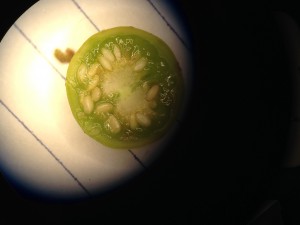
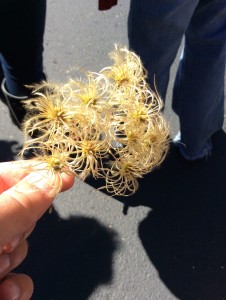
Two fused carpels is a common/conserved characteristic of the Solanaceae family.
The queen Ann’s lace is pretty when it’s blooming like your photo. I thought they were done blooming because they were at cedar bog.